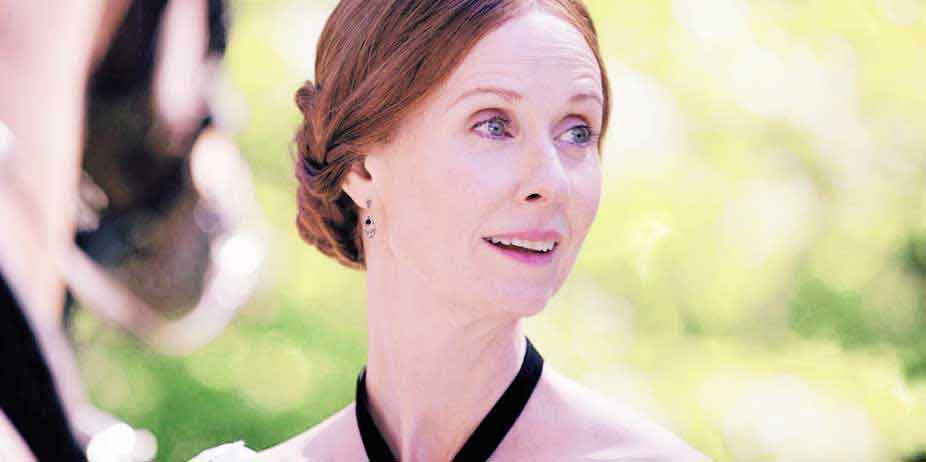 A
Quiet Passion (2016)
A
Quiet Passion (2016)
Generations have marveled over the poetic musings by Emily Dickinson, from her artful depictions of death to love lost and deeper yearning, but in her lifetime she was never appreciated nor much acknowledged for her artistry. A Quiet Passion is an attempt to delve into her life, her struggle between perfection and rigid opinions, as well as to explore what drove her into social isolation in her later years. The result is a film at times beautiful and depressing.
Young Emily is a clever, adept, sensitive student, but feels stifled at the rigid religious school that frowns on her modern ideas. She is relieved to return home to her loving, understanding family, especially her good-natured sister Vinnie. They face down their tyrannical aunt's narrow opinions together, but as the years pass, Emily (Cynthia Nixon) feels a profound dissatisfaction with her loneliness and inability to make her voice heard in the world. She clings to her good friends and those of "open opinions," but conflicts at times with her more forgiving sister (Jennifer Ehle) as her body starts to misbehave in unusual ways.
The story is an unusual one, since it's a biopic focused more on the accumulation of an intellectual's life, so there's no direct narrative or plot, so much as series of incidents that mark Emily's life and reveal to the audience her true passions, which were intellectual thought, poetry, and her "art." It engages the audience and toys with its emotions, since Emily is not an easy narrator -- she can be vulnerable and devastated one moment, fierce and rude the next, and the director isn't afraid us to show us both sides to our nature, nor to care whether we approve of her or not. It's a bold, literal, honest form of storytelling that doesn't shy away from her flaws, while highlighting her virtues; and the performances involved are magnificent. Nixon is virtually unrecognizable as she transforms into a shell of a woman, who has withdrawn so much she cannot even recognize herself, driven by inner demons to be "good." But, Ehle almost steals scenes from her, with her luminous charismatic presence. Vinnie is as much a strong character -- far more agreeable, sociable, and polite than her sister -- as Emily, and the relationship between them frames most of the storyline.
The cinematography is beautiful, and having so much quiet, subdued artistry around makes scenes of epileptic fits even more jarring, but at times I found it moved rather slowly. There's also a strange dynamic involved with religious beliefs; a duel representation of rigid fundamentalism (which Emily rebels against) and Emily's ambiguous personal beliefs, which she hints at but never fleshes out fully, so the audience is never quite sure what she believes, or doesn't believe, what touches her heart, and what repulses her; she befriends agnostics and atheists, falls in love with a pastor's words, refuses to attend Church sometimes but not others; she remains a mystery, and perhaps this is most truly representative of the woman herself... never quite understood, in her own time or in ours.
Sexual Content:
A woman suggests through veiled dialogue that she does
not enjoy sleeping with her husband ("I do my duty"); a
woman catches a man and woman breathing heavily /
groping one another on the couch and condemns their
adultery.
Violence:
A woman suffers violent epileptic fits.
Other:
Some clergymen are depicted as flat, boring, rigid
individuals; the more religion someone has, the nastier
they seem to be (judgmental, critical, with martyr
complexes).
